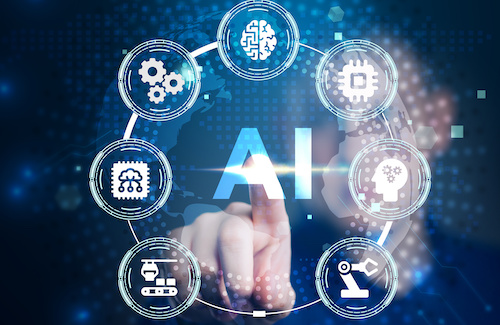Key points:
- AI empowers educators to create more adaptive and engaging learning environments
- Learn about the benefits of AI in education
- Discover more about why AI in education is essential for learning
AI in education is revolutionizing learning by becoming an invaluable aid to teachers. Beyond automation, AI enhances teaching with personalized support, content creation, and data-driven insights. Explore how AI is transforming the role of educators, offering innovative tools that amplify teaching effectiveness and cater to individual student needs.
How can AI help teachers?
AI tools for teachers can extend crucial support, going beyond mere automation to revolutionize the education landscape. Personalized learning assistance is a key aspect, as AI analyzes individual student data to provide tailored content and insights into learning preferences, aiding teachers in adapting their methods to meet diverse needs.
AI contributes to content creation by generating interactive learning materials such as simulations and virtual labs. This not only enhances lesson plans but also offers teachers innovative tools to engage students in dynamic ways.
Furthermore, AI enables more informed decision-making through data analytics. Educators can gain valuable insights into student performance trends, allowing for adjustments in teaching strategies and curricula to ensure optimal learning outcomes.
In addition, AI acts as a virtual support system, offering immediate assistance to teachers in various aspects. Virtual assistants and chatbots powered by AI can handle routine queries, freeing up teachers to focus on more meaningful interactions with students and on refining their instructional techniques.
Overall, AI enhances teaching by providing personalized learning support, aiding in content creation, offering data-driven insights, and serving as a virtual assistant, empowering educators to create more adaptive, engaging, and effective learning environments.
How can AI help students?
AI education tools go beyond tutoring and personalization to offer diverse support for students, revolutionizing students’ learning experiences. AI can enrich content creation by generating interactive and immersive learning materials such as simulations, virtual labs, and educational games. These resources provide students with engaging tools to explore complex subjects in innovative ways, making learning more enjoyable and effective.
Moreover, AI facilitates adaptive assessments that move beyond traditional testing methods. These assessments can evaluate not only factual knowledge but also critical thinking skills and problem-solving capabilities, offering a more comprehensive understanding of students’ abilities.
AI-driven tools also contribute to the development of collaborative learning environments. Virtual assistants and chatbots powered by AI can foster communication and teamwork among students, promoting interactive discussions and group projects.
Additionally, AI aids in the early identification of learning gaps. By continuously monitoring student performance, AI can help educators intervene proactively, ensuring that students receive timely support and resources to address challenges.
In summary, AI enhances the student experience by facilitating innovative content creation, offering adaptive assessments, fostering collaborative learning, and supporting early intervention strategies. These applications collectively contribute to a more dynamic, engaging, and effective educational environment for students.
How artificial intelligence is used in education
The role of AI in education is not limited to one or two uses, but rather, AI is employed across various dimensions in education, transforming traditional teaching and learning methods.
Content creation is revolutionized as AI contributes to the development of interactive and adaptive learning materials. Simulations, virtual labs, and educational games created with AI engage students in dynamic ways, making education more enjoyable and effective.
Administrative efficiency is enhanced through AI’s automation of routine tasks like grading and attendance tracking. This allows educators to focus on more interactive teaching methods and meaningful student interactions.
Furthermore, AI analytics provide valuable insights for educators. By analyzing trends in student performance, educators can make data-informed decisions, refine teaching strategies, and address learning gaps.
Collaborative learning is facilitated by AI-driven tools that promote communication and teamwork among students. Virtual assistants and chatbots powered by AI offer additional support beyond traditional classroom hours.
Overall, AI in education creates a more adaptive, efficient, and engaging learning environment, offering personalized learning experiences, innovative content, and valuable data-driven insights for educators and students alike.
What are the benefits of AI in teaching and learning?
Looking at the present and future of AI in education, it’s evident that AI will continue to bring a multitude of benefits to teaching and learning. Personalized learning, facilitated by AI algorithms, tailors educational content to individual student needs, fostering deeper understanding and engagement. Content creation is enhanced as AI generates interactive and adaptive learning materials, making education more immersive and enjoyable. Furthermore, AI analytics provide valuable insights into student performance, guiding informed decision-making and refining teaching strategies. Collaborative learning environments benefit from AI-driven tools that foster communication and teamwork. Overall, AI in teaching and learning enriches the educational experience, providing personalized support, innovative resources, and valuable data-driven insights for both educators and students.
Conclusion
AI significantly enhances teaching by offering personalized learning support, aiding content creation, providing data-driven insights, and acting as a virtual assistant. These multifaceted contributions empower educators to create more adaptive, engaging, and effective learning environments, ultimately transforming the teaching profession for a technology-driven future.
- Classroom Learning - April 5, 2024
- Advantages and Disadvantages of Classroom Management - April 5, 2024
- What are Disadvantages of Classroom Management? - April 5, 2024

